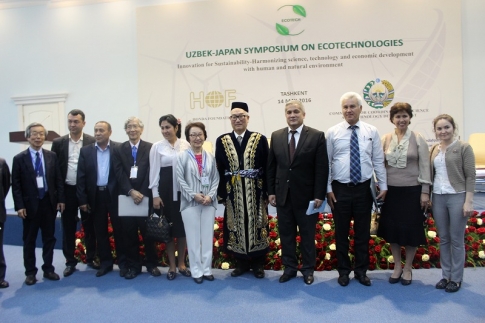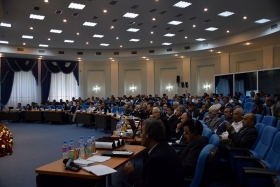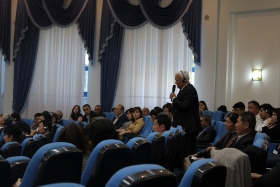* Information concerning affiliation/post/profile of the laureate is current at the time of the Symposium.
International Symposium 2016 in Tashkent
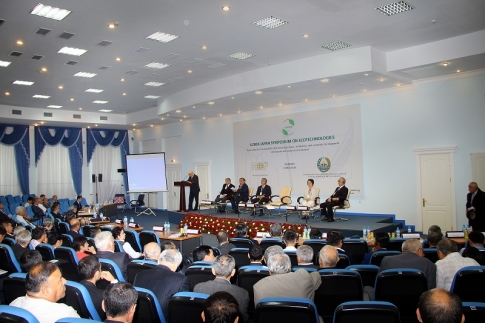
Innovation for Sustainability—Harmonizing Science, Technology and Economic Development with the Human and Natural Environments
The Honda Foundation held a symposium entitled "Innovation for Sustainability—Harmonizing Science, Technology and Economic Development with the Human and Natural Environments" in Tashkent, Uzbekistan, on May 14th, 2016, in cooperation with the Committee for Coordination of Science and Technology Development (CCSTD) under the Cabinet of Ministers of the Republic of Uzbekistan. In addition to the delegation representing the Honda Foundation, the symposium was attended by 203 representatives of the country's research and educational institutions, including the Academy of Sciences of Uzbekistan, the largest scientific organization in the country, and the Ministry of Higher and Secondary Specialized Education.
Opening remarks were given by Ms. Yoriko Kawaguchi, former Foreign/Environment Minister of Japan and currently professor at the Meiji Institute for Global Affairs, Mr. Fumihiko Kato, Ambassador Extraordinary and Plenipotentiary of Japan to the Republic of Uzbekistan and Dr. Shavkat Salikhov, President of the Academy of Sciences of Uzbekistan. An Introductory Session by Honda Foundation President Hiroto Ishida and Nobuhiko Shima, Chairman of the Japan-Uzbekistan Association followed the opening remarks.
The symposium was held to discuss how we should promote innovation to support the sustainable development of science and technology that is in harmony with the human and natural environments, focusing on the lessons learned by Japan in its rapid economic development period and beyond. The keynote speeches presented an overview of the Japanese experience in the period of rapid economic growth and the current status of science and technology development in Uzbekistan. The first session reviewed the technological evolution and legal aspects for economic development and environmental protection or restoration. The second session discussed success stories in the sphere of ecotechnology practice, followed by the third session that looked into the future of advanced environmental technologies, with a focus on introducing technological innovation including infrastructural changes. The wrap-up session discussed the directions in innovation in Japan and Uzbekistan, founded on the discussions that took place in the symposium sessions, involving lively exchanges of opinion.
* The following is a summary of the presentations at the symposium.
-
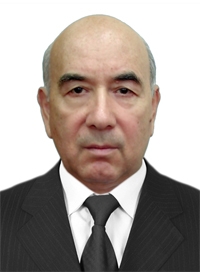
-
• Opening Remarks
Dr. Shavkat Salikhov
President, Academy of Sciences of Uzbekistan,
Chairman of Committee for Coordination of Science and Technology Development
Dr. Salikhov spoke on the current situation of the STI (science, technology and innovation) policy of Uzbekistan, beginning with development of the legislative, organizational framework required to promote innovation and the economic infrastructure involving taxation and finance and extending into other factors that are necessary, including logistics, provision of information and a flexible personnel policy. In view of the high innovation potential the country holds, he stated that to achieve innovation, policy implementation should be based on safe and sustainable technologies and that ecotechnology takes top priority in the future of Uzbekistan's STI development.
-
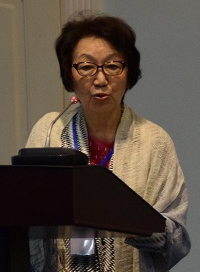
-
Session 1
Technological Evolution and Legal Aspects for Economic Development and Environmental Protection/Restoration
Critical Keys to Reduce Pollution: A Message from Japan
Ms. Yoriko Kawaguchi
Former Foreign/Environment Minister of Japan,
Professor of Meiji Institute for Global Affairs, Meiji University
Ms. Kawaguchi presented, as the three critical keys to reduce pollution in Japan, (1) regulatory and incentive policies, (2) development and dissemination of technologies that have an economic effect on the market, along with human resources development, and (3) fulfillment of roles commensurate with their respective responsibilities by all the parties involved. Furthermore, she stated that despite progress in policy requiring the emitters to bear responsibility and care for the victims, the pollution problem has yet to be resolved in Japan. In view of the growing difficulty and globalization in the scale of environmental problems, she spoke of the importance of the role of Japan's technologies in addressing them and said that the country's contribution is expected to grow further.
-
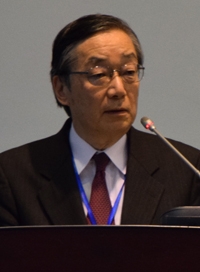
-
Session 2
Success Stories in Sphere of Ecotechnology Practice
Ecotechnology for Water Infrastructure in Big Cities
Dr. Shinichiro Ohgaki
President, Japan Water Research Center
Professor Emeritus of The University of Tokyo
Dr. Ohgaki presented his recommendations on what type of water supply system is ideal for urban and rural areas in the face of structural changes in society, such as urbanization and climatic changes, as well as unpredictable changes such as earthquakes and tsunami disasters. Referring to the efforts made in Tokyo and other cities in Japan, he presented the history of, as well as case studies on, the development of water and sewage systems and strong water supply networks that are resistant to natural disasters.
-
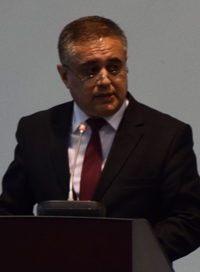
-
Session 3
Future of Advanced Environment Technology (Future infrastructure with introduction of technological innovation)
The Role of Center for High Technologies (Tashkent) on Energy-saving and Environment Friendly Technologies Promotion
Dr. Sharatdin Mirzaakhemedov
Director of Centre for High Tech Technologies (CHT)
Dr. Mirzaakhemedov stated that development of high technology in Uzbekistan will promote economic development through the entire Central Asian region, presenting examples such as the generation of pure hydrogen by catalytic decomposition at CHT and development of the cloning of many plant species that are unaffected by weather conditions, made possible with micro propagation technology. He reported that CHT is striving to become a world-class initiative in Central Asia to promote the scientific ecosystem of Uzbekistan, where research, business and education have joined to develop solutions on a mutual benefit basis and to find sustainable solutions to social problems.
